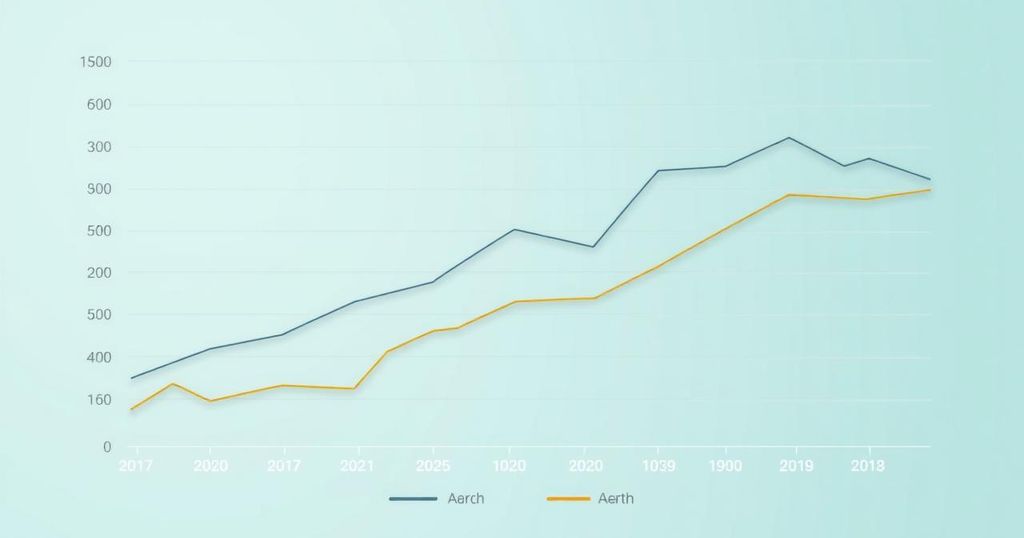Nigeria’s February Inflation Rate Declines to 23.18% Amid Economic Reforms
Nigeria’s inflation rate decreased to 23.18% in February, following major declines in the previous months. This change is attributed to the National Bureau of Statistics’ rebasing of the Consumer Price Index and economic reforms initiated by President Bola Tinubu. The central bank has chosen to keep interest rates steady, citing improved foreign exchange stability.
Nigeria’s inflation rate has decreased to 23.18% year-on-year as reported by the National Bureau of Statistics (NBS) for February, which signifies a drop from 24.48% in January. This decline follows the recent rebasing of the Consumer Price Index, aligning it with updated consumption patterns in Nigeria.
The decline in inflation is noteworthy as it has significantly reduced from 34.80% in December, marking the first substantial decrease in over ten years. The rebasing was undertaken to update the inflation data from a base year of 2009 to 2024.
Last year, inflation reached 28-year peaks, driven by fiscal policies implemented by President Bola Tinubu, including discontinuing expensive subsidies and devaluing the naira. Following these developments, the central bank has decided to maintain its key interest rate during its initial meeting of the year, citing the stabilization of foreign exchange and plummeting inflation rates.
In conclusion, Nigeria’s inflation rate has shown a significant decrease, settling at 23.18% year-on-year in February. Factors influencing this trend include the successful rebasing of the Consumer Price Index and strategic decisions made by the central government. Continued observation of these economic indicators will be essential for assessing Nigeria’s fiscal health moving forward.
Original Source: money.usnews.com




Post Comment